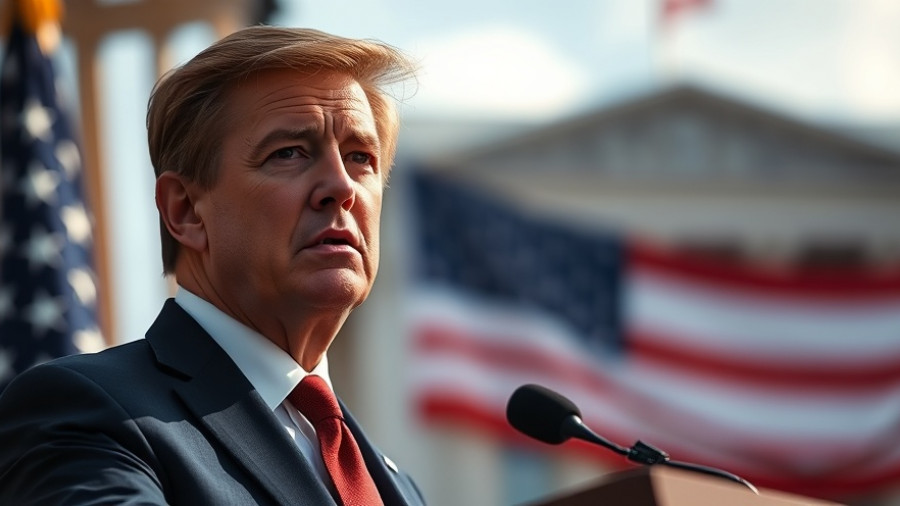
The Press vs. the Pentagon: An Erosion of Trust?
In recent days, an unprecedented clash between the Trump administration and the press has unfolded over new restrictions imposed on journalists reporting from the Pentagon. The nearly universal walkout of accredited journalists raises serious questions about First Amendment rights and the transparency of governmental operations. As we delve deeper into this pressing issue, the implications for democratic society and public accountability are becoming clear.
In 'Why is President Trump trying to restrict what journalists can say?', the discussion examines the evolving relationship between the administration and the press, prompting us to analyze its implications more deeply.
The Pentagon’s New Policy: What’s at Stake for Journalists?
The Pentagon, under the Trump administration, has mandated new policies requiring journalists who cover the Department of Defense to sign agreements that limit their ability to report on classified and sensitive information. Specifically, reporters would be restricted from disclosing anything not explicitly authorized by the Pentagon. Such rules effectively place a chokehold on journalistic integrity and the ability to provide unbiased news to the public.
Major outlets like CNN, ABC, BBC, and the New York Times are among those that refused to sign, walking away from the Pentagon altogether. As Tara Cop, a correspondent from the Washington Post, succinctly stated, their role has always been to glean insights directly from within the military to report on the crucial events that shape national security. Losing access to the Pentagon is not just a logistical setback but a blow to the fundamental principle of a free press.
Click Here for a Look Back: Historical Context
This situation isn’t isolated. The precedence for journalistic coverage of military actions stretches back decades—from the release of the Pentagon Papers during the Vietnam War, which illustrated the government’s misrepresentation of its military strategies, to modern-day controversies around military interventions. Inadequate access to accurate information can transform public perceptions and skew the narrative about military engagements.
Public Trust in Media and Government: Are They Inextricably Linked?
The relationship between government officials and the press is delicate. In recent years, the media landscape has been increasingly characterized by mistrust. The Trump administration’s tactics appear aimed at controlling narratives rather than fostering an environment of transparency. The underlying question is whether this creates further fissures in public trust—both in news outlets and in government itself.
Projected Trends: What's Next for Press Freedom?
As journalists grapple with these new restrictions, a question emerges: Will other administrations follow suit? The media landscape has already evolved dramatically with the rise of social media and the decline of traditional journalism. If more leaders adopt similar stances toward media restrictions, press freedom could suffer further erosion, jeopardizing democratic accountability.
Local and Global Perspectives: Finding Common Ground
In a world increasingly defined by conflicting narratives and sensationalized reporting, a balance must be struck. Internationally, many nations still value a robust independent press. Learning from cross-border approaches may provide insight into how to maintain journalistic integrity without compromising national security. If countries can find a way to protect both press freedoms and governmental confidentiality, it could serve as a model for effectively navigating the challenges of state reporting.
What Can You Do? Empowering Yourself as an Informed Citizen
Understanding the implications of reduced media access is vital for citizen engagement. The erosion of press freedoms ultimately impacts everyone’s ability to make informed choices. Social media offers platforms for alternative narratives but can lead to misinformation. Take the time to verify news sources, question narratives, and seek out diverse opinions. Engaging thoughtfully with media can foster a more informed populace and repair societal trust.
In reflecting on the video titled “Why is President Trump trying to restrict what journalists can say?”, we’ve explored the consequences of government policies on media freedom and public discourse. As these restrictions unfold, the ongoing dialogue surrounding the value of unbiased journalism becomes ever more critical. Maintaining an active engagement with credible news sources ensures that we contribute to a democratic society.
 Add Row
Add Row  Add
Add 




Write A Comment